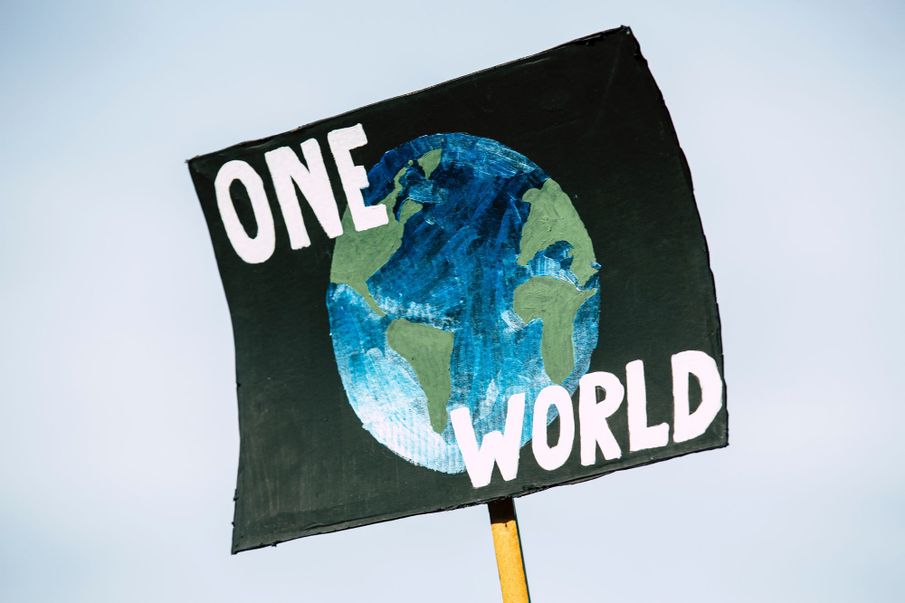We've rounded up some everyday actions you can take to help fight the current climate change crisis
We know that climate change is happening, and there's a growing body of evidence suggesting the rate of the crisis is speeding up.
In recent weeks, the threat to our environment has been gaining traction in the media, with activists, organisations, and individuals calling for action. The United Nations’ most recent review calls for immediate, everyday action from everyone, with UN secretary-general Antonio Guterres describing the current state of affairs as a "code red for humanity".
Climate change activist Greta Thunberg echoed the plea for immediate action from all of us, sharing on Twitter: "We can still avoid the worst consequences, but not if we continue like today.”
It doesn't tell us what to do. It is up to us to be brave and take decisions based on the scientific evidence provided in these reports. We can still avoid the worst consequences, but not if we continue like today, and not without treating the crisis like a crisis. 2/2
— Greta Thunberg (@GretaThunberg) August 9, 2021
We so often think of climate change as melting ice caps but, actually, the crisis is much closer to home than we think, with heatwaves, flooding, and drought showing up in the most ‘unlikely’ of places. And that in itself can be incredibly overwhelming.
Climate change is scary, we feel it, too. It can make you feel helpless, overwhelmed, and even fraught at the thought of what your future may look like. With eco-anxiety, it can be tempting to turn off the noise and detach, as the reality can seem daunting – but, actually, you can make a difference with the simplest of actions. Here are our five everyday actions to help tackle climate change:
1. Educate yourself
They say knowledge is power – and, in this case, the sentiment couldn’t be closer to the truth. Having the knowledge of what you can do and why, enables you the power to act. And whether that’s as simple as knowing how to recycle effectively or joining peaceful protests to show your support, any action you take based on science is helping to tackle the climate crisis.
Consider following climate change activists including:
2. Avoid fast fashion
Fast fashion is a huge contributor to the climate crisis, with hundreds of textile items ending up in landfills every year. Cheap, easy to access, disposable clothing is damaging to the environment, as the textile industry requires ample water, toxic chemicals, and relies heavily on air and car travel, contributing to pollution.
Whilst tackling fast fashion lies heavily with big brands and the ethical choices they make, there are small things you can do that have a significant impact. Consider where you buy your clothes from by researching a company’s carbon footprint statement and its sustainability policy. Consider how many times you are likely to wear the items, or are they a one-time purchase? The rise of apps like Vinted, Depop and Shpock has helped to tackle fast fashion, promoting recycling and reusing unwanted clothes. The saying, 'one person’s trash is another person’s treasure' has never been more relevant.
3. Nurture the nature around you
Natural green spaces such as your local park, nature reserve, and gardens are vital when it comes to fighting climate change, as through photosynthesis, trees absorb atmospheric carbon dioxide and store it for centuries. They also help to regulate the temperature within overpopulated urban areas, reduce the risk of flooding by absorbing rainwater, and provide habitats for a whole host of animals.
You can help to protect local green spaces by boosting their populations. The Woodland Trust has a variety of grants and schemes to help all of us get our hands dirty and plant our future. If you don’t have a garden, consider a window box, or a handy herb garden on the windowsill. Even if you just want to plant one tree in your garden or you're a farmer looking to increase your woodland, it all counts.
4. Utilise plant power
Eating a meat-heavy diet is having a negative impact on the environment. We’re not saying that everyone needs to go vegan, but reducing your animal protein is a huge gain against global warming.
After fossil fuels, the meat and dairy industry is one of the largest contributors to global warming, and emits a considerable amount of greenhouse gases. The World Resources Institute notes that if you can halve your consumption of animal protein, you can reduce your diet's carbon footprint by up to 40%!
Read more about how changing your diet can help save the planet.

5. Offset the carbon emissions you can’t avoid
A 2017 study found that reducing the amount of time using a car was the most effective action you can take against climate change. We know you’ve probably heard this before, and it isn’t always realistic – we also know about the guilt that comes from feeling helpless when you want to make a difference. So one option is to offset your carbon emissions.
The United Nations (UN) have a handy carbon footprint calculator that calculates your output for you. With this figure in mind, you can offset your carbon emissions by contributing towards a reputable green project, which you can find listed on the UN.
If you’re struggling with eco-anxiety, and feeling overwhelmed by media coverage and reporting of climate change, use Counselling Directory to find a therapist who can help you work through your worries.


Comments